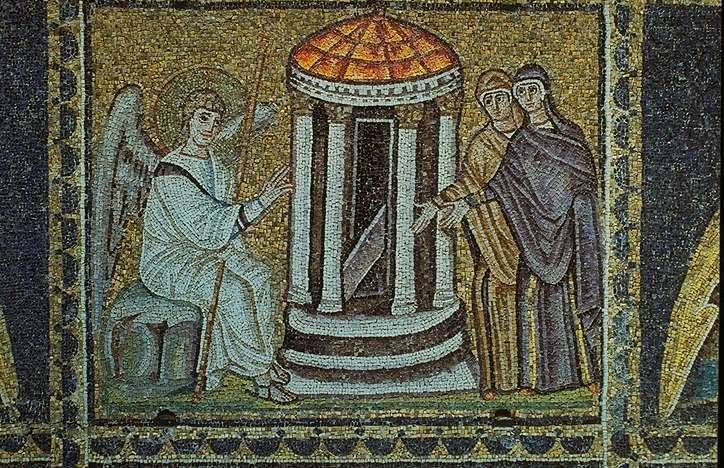
Site historique consacré à Marie, surnommée "la Magdaléenne" (alias Marie de Magdala, alias Marie-Madeleine)
5 Juin 2019
Recommended Book on Academia / Livre recommandé sur Academia
![]()

Mary Magdalene The Unsuspected Truth (Part II)

Maddalena (Antonio Ciseri, 1864)
En Français

Cliquer ci-dessous
/image%2F2630383%2F20180422%2Fob_fcfce5_maddalena-antonio-ciseri-c-1870.jpg)
Marie-Madeleine ou Marie de Magdala ? - Marie appelée la Magdaléenne (Marie, Marie-Madeleine)
English version Click below Mary Magdalene The Unsuspected Truth (Part II) Maddalena (Antonio Ciseri, 1864) Mary Magdalene or Mary of Magdala? - Why do you say "Mary of Magdala" and not "Mary ...
http://marie-la-magdaleenne.over-blog.com/2018/04/marie-madeleine-ou-marie-de-magdala.html
- Why do you say “Mary of Magdala” and not “Mary Magdalene” like everyone else?
- In fact, the compound name Mary Magdalene never existed except in our translations. The gospels only mention a certain Maria hê Magdalênê, that is to say a woman named “Mary”, who – according to the specialists – would come from “Magdala”. Once translated into Latin, in the fourth century, this name became Maria Magdalene then, for us: “Mary Magdalene”.
- Is it better to say “Mary of Magdala” rather than “Mary Magdalene”?
- This designation seems indeed preferable, but it is not correct either. It is only conventional.
- But that is the one you use yourself!
- It is necessary to give her a name! In reality, the only thing we are quite certain about this female figure is that she is called “Mary”, in Hebrew: Miriam.
- But the city of Magdala did exist, did not it?
- There were even several localities of this name. But it is not at all sure that it is necessary to translate Maria hê Magdalênê by “Mary of Magdala”...
- Why?
- Because such a translation is problematic.
- What kind of problem?
- First, in the New Testament, and in the Bible in general, no woman is ever named after a place name. Mary would be a form of exception.
- And what about “Mary of Bethany”?
- Mary of Bethany? But this name does not appear anywhere in this form in the Scriptures! It is only an appellation created by the exegetes to designate the sister of Martha and Lazarus. In John’s Gospel, this female character is simply called “Mary”.
- And what about Lydia, in the Acts of the Apostles?
- The merchant of purple cloth? Precisely. She is said to be “from the city of Thyatira” but she is not called “Lydia of Thyatira”.
- And “Simon of Cyrene”, “Joseph of Arimathea”, “Saul of Tarsus”, “Lucius of Cyrene”, “Lazarus of Bethany”?...
- Yes, but they are men! For a woman, it was customary for her to be named either by her husband’s name or by her father’s name.
- But if the terms translated by “of Magdala” do not refer here to a place name what is it then?
- This is a nickname as Luke says. The evangelist writes: Maria hê kalouménê Magdalênê.
- That is to say?
- Mary nicknamed the Magdalênê.
- And it cannot be a locality here?
- It is very unlikely. In the Bible, when the word kaloumenos separates two other terms, and the first of the two terms is a proper noun, the second is never a name of locality. It is always a nickname that intends to emphasize a physical or moral characteristic.
- Do you have some examples?
- For example: “Judas, called Maccabeus”, that is to say “the Hammer”; or “Ptolemeus, nicknamed Macron”, that is to say “long head”…
- And are there some exceptions?
- Only one, but in theory only. “Judas called Iscariot” that some interpret in the sense: “Judas, man or inhabitant of Kerioth”. But recent research has shown that “Iscariot” does not refer to a locality.
- But are not the cities of Magdala and Kerioth mentioned as such in the New Testament?
- Not even! Neither of these two localities appears in the New Testament as a specific geographical location.
- What does it mean?
- It is quite simple: the words translated by “of Magdala” have been misunderstood. Originally, they had to have a different meaning.
- Which one?
- Or rather, which ones? We must not lose sight of the fact that if the Gospels are written in Greek, Jesus and his disciples spoke in Hebrew and Aramaic. And in Aramaic, the terms translated by “Mary of Magdala” can have several meanings.
- And can we know which ones?
- In Aramaic, Miriam megaddela – which is conventionally translated as “Mary of Magdala” or “Mary Magdalene” – can mean Mary “the Great” or “the Sanctified”. But also: Mary “the educator” or “the hairdresser”…
Mary Magdalene
The Unsuspected Truth
Part III
/image%2F2630383%2F20190605%2Fob_df107b_variante.jpg)
MARY "THE HAIRDRESSER"? - Marie appelée la Magdaléenne (Marie, Marie-Madeleine)
Mary Magdalene The Unsuspected Truth (Part III) Autumn (Vladimir Kireev, 2016) Mary "The Hairdresser"? - So, in the Talmud, is not the mother of Jesus called "Mary the hairdresser"? - Not exactly ...
http://marie-la-magdaleenne.over-blog.com/2019/06/mary-the-hairdresser.html
Mary Magdalene
The Unsuspected Truth
Part I
/image%2F2630383%2F20200316%2Fob_a851eb_black-cover-png.PNG)
Mary Magdalene The Unsuspected Truth - Marie appelée la Magdaléenne (Marie, Marie-Madeleine)
Recommended Book on Academia / Livre recommandé sur Academia Mary Magdalene The Unsuspected Truth (Part I) Notice to the Reader This booklet contains most of the information and discoveries recently
http://marie-la-magdaleenne.over-blog.com/2019/06/mary-magdalene-the-unsuspected-truth.html
See also:
/image%2F2569100%2F20190309%2Fob_292083_connaissance-hellenique.jpg)
Mary of Magdala: the mother of Jesus? - thierry-murcia-recherches-historico-bibliques.over-blog.com
English translation of an article published in french in: Connaissance hellénique , BILLETS, N°141 (July 2015) http://ch.hypotheses.org/1278 About the Author Thierry Murcia is a french historian ...
/image%2F2630383%2F20190619%2Fob_41e219_capture-2.PNG)
Which Mary is this? - Marie appelée la Magdaléenne (Marie, Marie-Madeleine)
Jesus and Mary The stained glass window of Kilmore Church (Scotland) Which Mary is this? Jesus and Mary , detail (stained glass window, Kilmore Church, Scotland) Who is the female character ...
http://marie-la-magdaleenne.over-blog.com/2019/06/which-mary-is-this.html
/image%2F2630383%2F20190619%2Fob_562a87_m-madeleine.jpg)
Jesus and Mary: The Kiss - Marie appelée la Magdaléenne (Marie, Marie-Madeleine)
Since the publication of the Da Vinci Code, the idea that Mary Magdalene may have been the sexual and/or mystical companion of Jesus has become obvious to many people. On some sites, which present ...
http://marie-la-magdaleenne.over-blog.com/2019/06/jesus-and-mary-the-kiss.html